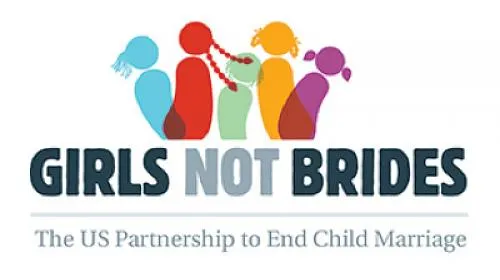Historic resolution aims to combat child marriage around the world
ATLANTA – (December 1, 2014) – CARE, one of the world’s leading humanitarian organizations, applauds the UN General Assembly’s adoption of the first substantive resolution on early, child and forced marriage.
This historic resolution, adopted on November 21, marks the first time 116 UN member states have agreed to sweeping recommendations to end child marriage. It also confirms the United Nations General Assembly’s resolve to meaningfully address child marriage in the post-2015 UN development agenda.
Child marriage is a gross human rights violation that puts young girls at risk. When a girl becomes a child bride, her life is forever changed: She is more likely than her unmarried peers to drop out of school and have health and pregnancy problems. In the developing world, outside China, one in every three women between the ages of 20-24 was married before the age of 18.
Each day, nearly 39,000 girls under the age of 18 become child brides. That’s about one every two seconds CARE works directly with girls, their families, communities and local organizations to both reduce the prevalence and mitigate the many harmful impacts of child marriage through educational and behavior-change programs.
“This resolution proves that there is international consensus to act now to prevent millions of girls who suffer each year through early and forced marriage and instead give value to those girls and their potential and future,” said Erin Kennedy, CARE’s senior advisor of advocacy and partnerships and co-chair of Girls Not Brides USA.
The resolution recognizes child, early and forced marriage as:
§ A human rights abuse against women and girls;
§ A manifestation of deep-rooted gender inequalities, norms and stereotypes;
§ A signal that people are undervaluing girls and their potential;
§ A threat to girls’, women’s, and families’ health, education, economic and social status; and
§ A barrier to development and helps to perpetuate the cycle of poverty.
For the first time ever, the resolution provides internationally approved key recommendations about how states and international organizations need to act to prevent this human rights abuse.
Some of the key recommendations are:
§ Enacting laws and policies to end child and early forced marriage;
§ Implement and enforce existing laws and policies;
§ Adopt a coordinated approach across government and civil society actors who can stem the practice;
§ Develop and implement holistic and comprehensive responses and strategies to end the practice;
§ Promote and protect the human rights of all women and girls;
§ Recognize that women’s and girls’ rights including the right to education and to have control over and decide freely and responsibly on matters related to their sexuality.
The resolution also encourages continued UN and government action on the issue and specifically recognizes the need to include a clear target to end child, early and forced marriage in the UN post-2015 development agenda. Internationally recognizing child, early, and forced marriage as a grave human rights abuse and proposing critical recommendations for how to stop it is a key step in ending the practice.
“We’re hopeful that the resolution is a meaningful step for the world to work together to keep child and early forced marriage on the international agenda, and take actions on these key recommendations. If we do, we can prevent 1.2 billion girls from getting married as children by 2050, and contribute to ending gender inequality and making sure each girl and her dreams are valued,” Kennedy added.
About CARE’S work on child marriage:
CARE focuses on finding community-driven solutions that raise the value of girls, and increase opportunities for everyone, girls and boys, men and women. In each context, we work with the community to uncover and address the root causes in that context, and to build social will to support girls’ rights and opportunities. CARE also advocates with decision-makers at the local, national, and global levels to increase their commitment to ending child marriage, including passing laws to protect girls and prevent child marriage, and implementing laws that already exist. Our advocacy extends beyond a focus on formal policy change, towards the larger goal of influencing social and structural change to address early marriage. Furthermore, CARE co-chairs the Girls Not Brides USA coalition, which is the premier advocacy coalition in the US with over 50 coalition members, working to drive more strategic, evidence-based and coordinated investments into programs and policies that will prevent child marriage and support married adolescents in communities worldwide. Learn more about CARE’s work on child marriage here.
About CARE:
Founded in 1945 with the creation of the CARE Package®, CARE is a leading humanitarian organization fighting global poverty. CARE places special focus on working alongside poor girls and women because, equipped with the proper resources, they have the power to lift whole families and entire communities out of poverty. Our six decades of experience show that when you empower a girl or woman, she becomes a catalyst, creating ripples of positive change that lift up everyone around her. That’s why girls and women are at the heart of CARE’s community-based efforts to improve education, health, and economic opportunity for everyone. We also work with girls and women to promote social justice, respond to emergencies and confront hunger and climate change. Last year CARE worked in 87 countries and reached more than 97 million people around the world. To learn more, visit care.org.
Media Contact Holly Frew, hfrew@care.org, office, 404.979.9389, mobile 1 770.842.6188

